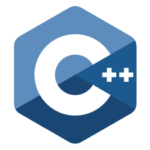Preparing for a C++ interview can be challenging, especially with its vast and intricate nature. Here are ten crucial C++ interview questions along with detailed solutions:
- 1 . What is the difference between
deleteanddelete[]in C++?
deleteis used to deallocate memory for a single object created withnew.delete[]is used to deallocate memory for an array of objects created withnew[].
// Example
int* single = new int;
delete single;
int* arr = new int[5];
delete[] arr;- 2. What is a virtual function?
- A virtual function is a member function in a base class that is declared with the
virtualkeyword and is meant to be overridden in derived classes. - It allows the function to be dynamically bound at runtime based on the object’s actual type.
// Example
class Base {
public:
virtual void foo() {
cout << "Base foo" << endl;
}
};
class Derived : public Base {
public:
void foo() override {
cout << "Derived foo" << endl;
}
};- 3.Explain the difference between
structandclassin C++.
- In C++,
structandclassare almost identical, with the only difference being the default access level. - Members of a
structare public by default, while members of aclassare private by default.
// Example
struct Point {
int x, y; // public by default
};
class Circle {
int radius; // private by default
public:
void setRadius(int r) { radius = r; }
int getRadius() { return radius; }
};- 4. What is the difference between
std::mapandstd::unordered_map?
std::mapis a sorted associative container that contains key-value pairs, where keys are unique and stored in sorted order based on the key.std::unordered_mapis an unordered associative container that contains key-value pairs, where keys are unique and stored in an unordered manner based on a hash function.
// Example
std::map<int, string> myMap;
std::unordered_map<int, string> myUnorderedMap;- 5. What is RAII (Resource Acquisition Is Initialization)?
- RAII is a programming idiom in C++ where the resource allocation is tied to object lifetime.
- Resources like memory, file handles, sockets, etc., are acquired in the constructor and released in the destructor of a class.
// Example
class File {
FILE* file;
public:
File(const char* filename) {
file = fopen(filename, "r");
}
~File() {
if (file) fclose(file);
}
};- 6. What is the difference between
reinterpret_cast,static_cast,dynamic_cast, andconst_cast?
reinterpret_castis used for type casting that changes the pointer type to an unrelated type.static_castis used for regular type conversions that do not involve polymorphic types.dynamic_castis used for safe downcasting in polymorphic types.const_castis used to add or remove const/volatile qualifiers from a variable.
// Example
void* ptr = reinterpret_cast<void*>(42);
int i = static_cast<int>(3.14);
Base* basePtr = dynamic_cast<Base*>(derivedPtr);
const_cast<int&>(constVar) = 10;- 7. Explain the difference between
newandmallocin C++.
newis an operator in C++ used to allocate memory for a single object or an array of objects and calls the object’s constructor.mallocis a function in C used to allocate a block of memory of a specified size and returns a void pointer.
// Example using new
int* single = new int;
int* arr = new int[5];
// Example using malloc (not recommended in C++)
int* single = (int*)malloc(sizeof(int));
int* arr = (int*)malloc(5 * sizeof(int));- 8. What is the
constexprkeyword in C++?
constexpris a keyword in C++ used to indicate that a variable or function can be evaluated at compile time.- It allows the compiler to perform optimizations and enforce constant expressions.
// Example
constexpr int square(int x) {
return x * x;
}
int main() {
constexpr int result = square(5); // evaluated at compile time
return 0;
}- 9. What is the difference between
overrideandfinalin C++?
overrideis used to explicitly declare that a function in a derived class overrides a virtual function in the base class.finalis used to indicate that a virtual function cannot be overridden in any further derived classes.
// Example
class Base {
public:
virtual void foo() {}
};
class Derived : public Base {
public:
void foo() override final {}
};
// Error: Cannot override 'foo' as it is marked 'final' in 'Derived'
// class FurtherDerived : public Derived {
// public:
// void foo() override {}
// };- 10 . Explain the concept of smart pointers in C++.
- Smart pointers are objects that behave like pointers but provide additional features such as automatic memory management (like garbage collection).
std::unique_ptris used for exclusive ownership,std::shared_ptrfor shared ownership, andstd::weak_ptrto observe an object without owning it.
// Example
std::shared_ptr<int> ptr1 = std::make_shared<int>(5);
std::shared_ptr<int> ptr2 = ptr1;These questions cover a broad range of topics in C++ and can help you prepare for interviews effectively. Make sure to understand the concepts thoroughly and practice writing code to solidify your understanding.



Leave a Reply